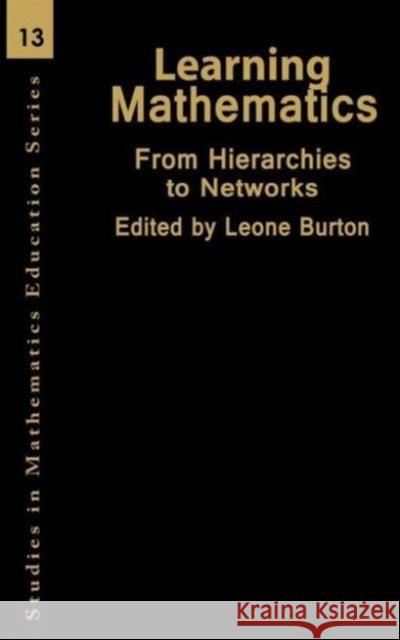Learning Mathematics: From Hierarchies to Networks » książka
Learning Mathematics: From Hierarchies to Networks
ISBN-13: 9780750710084 / Angielski / Twarda / 1999 / 280 str.
Learning Mathematics: From Hierarchies to Networks
ISBN-13: 9780750710084 / Angielski / Twarda / 1999 / 280 str.
(netto: 882,65 VAT: 5%)
Najniższa cena z 30 dni: 856,36
ok. 16-18 dni roboczych.
Darmowa dostawa!
Learning Mathematics brings together a collection of interrelated and forward-looking chapters by internationally recognized experts that explores changes in the theories and practices of learning (and teaching) mathematics.
The authors reject a traditional, transmission view of the teaching of mathematics which has proved so ineffective for learning. In its place they offer information gathered from research and from practice about effects on the learners seeking to create and negotiate meaning. Learners are presented as actively attempting to make sense of the mathematics they encounter, and learners, teachers and researchers are offered examples of ho such sense-making activities, incorporated into mathematics classrooms, impact on coming to know.
The book celebrates both diversity, in the range of different perspectives, contributions and topics, and unity, in the linking chapters and themes, It will be fascinating reading for those mathematics educators who are eager to engage with a socio-cultural perspective in order to better understand the complexity of learning mathematics.
Learning Mathematics brings together a collection of interrelated and forward-looking chapters by internationally recognized experts that explores changes in the theories and practices of learning (and teaching) mathematics.
The authors reject a traditional, transmission view of the teaching of mathematics which has proved so ineffective for learning. In its place they offer information gathered from research and from practice about effects on the learners seeking to create and negotiate meaning. Learners are presented as actively attempting to make sense of the mathematics they encounter, and learners, teachers and researchers are offered examples of ho such sense-making activities, incorporated into mathematics classrooms, impact on coming to know.
The book celebrates both diversity, in the range of different perspectives, contributions and topics, and unity, in the linking chapters and themes, It will be fascinating reading for those mathematics educators who are eager to engage with a socio-cultural perspective in order to better understand the complexity of learning mathematics.











